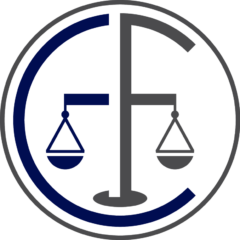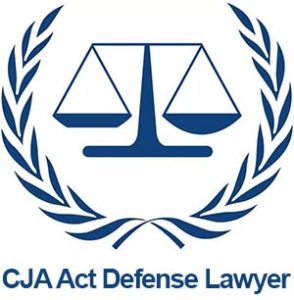Some of the best lawyers in any courthouse are court appointed lawyers or public defenders. And on any given day, I may be a court appointed lawyer: either working on behalf of clients charged with murder in the state system and appointed to me by the North Carolina Office of the Capital Defender or in the federal courts and appointed to me as part of the Criminal Justice Act.
A year after I entered law school in 2007, the American economy collapsed in the wake of the housing crisis. I could not find a job during my second summer, the summer when most law students get their best experience. So I ended up volunteering for the Wake County Public Defender’s office. I learned more in that three months than I did at any point in law school.
And I worked with some of the best lawyers – felony and misdemeanor public defenders – in Wake County. I second chaired two trials – one a robbery where I helped locate the alibi that led to the acquittal and a second involving a kidnapping and robbery of a used car lot on Capital Blvd where the lead lawyer – with only a little help from me – secured a acquittal to multiple charges.
I applied to work as a junior lawyer in the Office of the Public Defender, but budget cuts made it difficult to get a job, so I went “out on my own” and became a private defense lawyer. But, from the beginning, I have been on appointed-lists, first for a brief time as a misdemeanor lawyer in Wake County, and then later as a CJA attorney in the federal system. Most of my trials have been as a court-appointed lawyer.
Should I Keep my Public Defender?
If your court appointed lawyer is an actual Public Defender – that is a lawyer who works in a Public Defender’s Office – then you should probably keep that lawyer. Public Defenders have several advantages: first, they are in offices which have investigators who they can more easily use in your case. Public Defenders are also supervised: they have at the very least the head of the office who monitors their work and provides regular feedback. While most Public Defenders don’t need the feedback, the fact that the office has internal oversight means that the lawyers who work there are generally a cut above.
This is particularly true in the federal system where the Office of the Federal Public Defender (in North Carolina we have two such offices in the EDNC and the WDNC) has a staff of dozens of lawyers and support staff. Furthermore, the lawyers in that office are generally speaking up on the latest developments because they are in an office where there is at least some specialist focusing on some subset of federal criminal law or procedure.
Generally speaking, I recommend people keep their federal public defender, and only think someone should get rid of the assistant public defender if there is some sort of deep personality clash that prevents the client and AFPD from working together.
Should I keep my Court Appointed Lawyer?
This is a harder question: unfortunately in the North Carolina state system, budget cuts have meant that the payments to court appointed lawyers have not kept pace with inflation. The current rates in North Carolina are between $65 and $100 per hour which, given taxes and other overhead, end up netting the actual lawyer as little as $30/hr.
The federal system is much better in this regard with the current hourly rate at $164/hr. As a consequence, lawyers in the federal system can earn a reasonable income on a case.
How To Know Whether To Hire a Lawyer?
I saw a “paid” lawyer this week in state Superior Court who asserted that he could represent two defendants in a first degree murder case that had not yet been declared non-capital. That lawyer would never have gotten past the door in either the state or federal court appointed system.
So at the very least, a court appointed lawyer can’t create that catastrophic a result.
But then, should you hire a lawyer? The answer comes in two parts: do you know how to evaluate whether the lawyer will do a good job for you? What criteria will you use? How can you tell? If you think you can tell, then ask around: but be caution, because there are plenty of privately retained lawyers who aren’t very good.
Second, what can you pay. The brutal fact is that it costs money to hire a privately retained lawyer, and you should be prepared to pay a premium above whatever it is that lawyer thinks he or she could earn by being appointed to your case.
The bottom line is that in a federal case, it just doesn’t make sense to hire a lawyer if you can’t afford to pay at least $20,000.00 (this being the very low end of what it will cost).
In a state case, the fee might be a bit lower, but certainly not below $10,000 for a felony.
If you pay less than $20,000 on a federal case or less than $10,000 on a state felony case, chances are you are paying too little. And you should at that point consider sticking with your court appointed lawyer. Because I know you’re not firing your Public Defender. That’s plain foolishness (in most cases).





